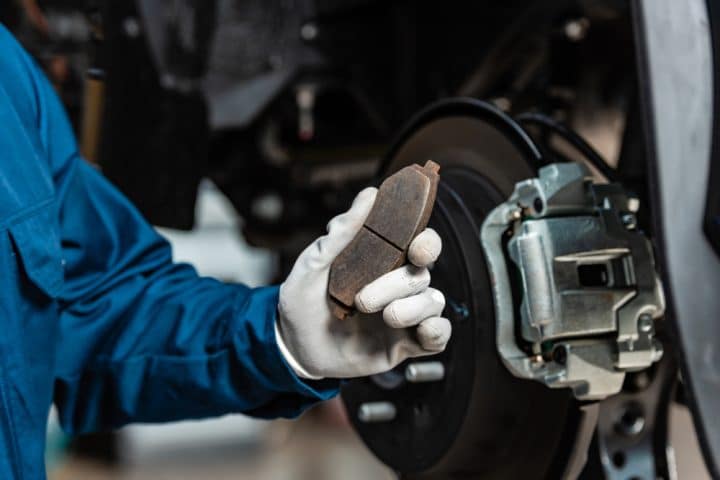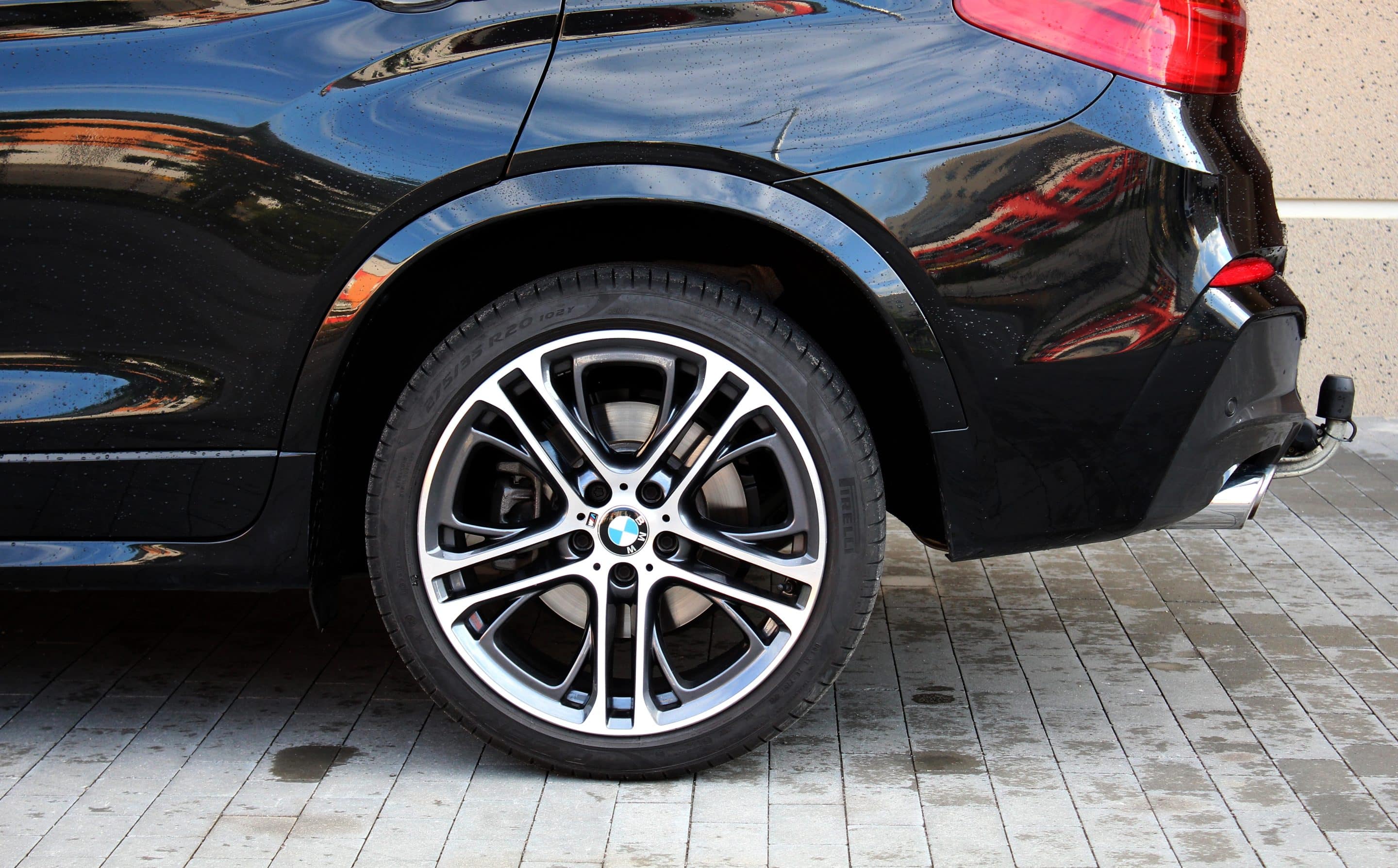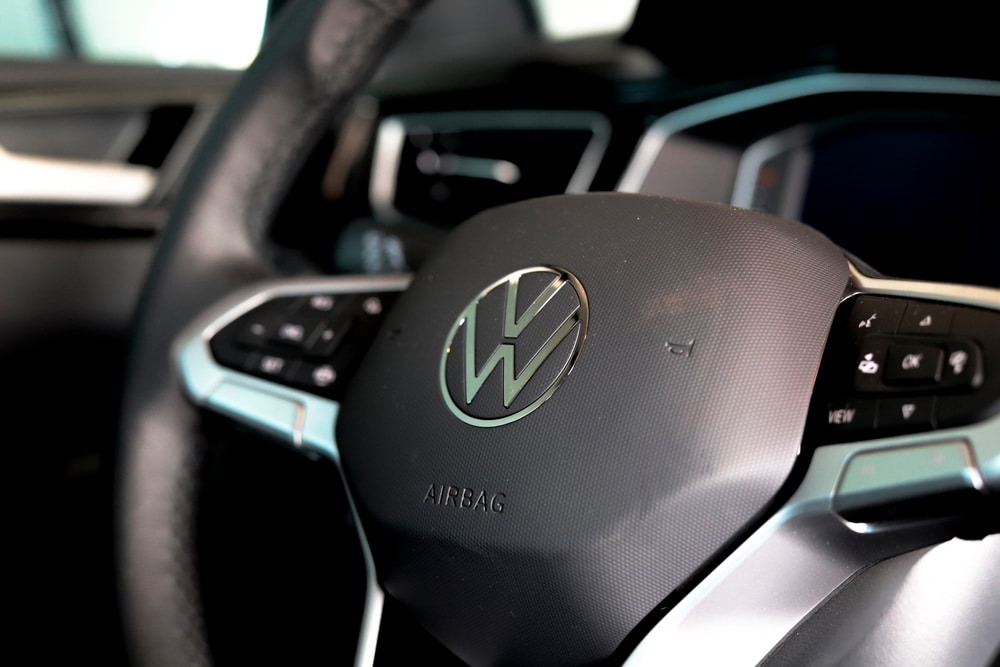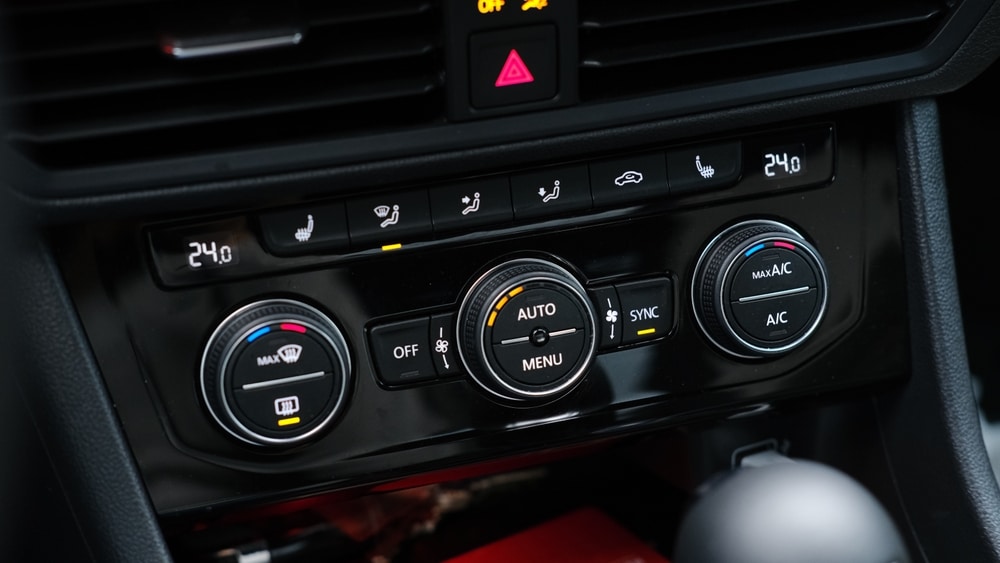Volkswagen Brake Pads
Is it time to replace your Volkswagen brake pads? If you’re not sure, you’re in the right place.
Throughout this detailed guide, you’ll explore essential information about brake pad replacement and identify the signs that indicate your Volkswagen might need new pads to keep it safe on the road.
Your Volkswagen brakes are crucial for both you and other road users’ safety and delaying brake pad replacement can lead to significant expenses and potential hazards. At JDK Automotive, our VW specialists are dedicated to assisting you with all your Volkswagen brake system needs.

The Complete Guide To VW Brake Pads
When you hit the brakes, your Volkswagen brake pads create enough friction to slow your vehicle or bring it to a halt.
Here’s a breakdown of how they function:
- Creating Friction: When you press your VW brake pedal, hydraulic pressure is applied to the brake calliper via brake fluid. This action pushes the brake pads against the brake disc, creating resistance.
- Deceleration and Stopping: If the braking force is strong enough, the friction between the brake pads and discs will slow down the rotation of your wheels, eventually bringing your Volkswagen to a stop.
- Heat Dissipation: This resistance generates a significant amount of heat, which can cause brake fade. Luckily, your VW braking system is designed to manage and dissipate this heat. Modern disc brakes have cooling fins or ventilation holes to help distribute heat and prevent brake components from overheating.
- Releasing Brake Pressure: When you release the brake pedal, the hydraulic pressure in the brake system decreases, allowing the brake pads to disengage from the discs and your Volkswagen to move again.
Over time, your brake pads wear out due to the constant exposure to heat and friction. As your brake material degrades, it becomes less effective and will need replacing.
Volkswagen provides guidelines for brake pad maintenance and replacement intervals; these can often be found in your VW owner’s handbook.
At JDK Automotive, our specialists recommend regular brake inspections to ensure your vehicle adheres to road safety standards and Volkswagen’s recommendations. The last thing you want is to be driving around with poor-quality brakes.
No matter your VW model, our experts can keep it in peak working condition. Call our team today for all your VW brake needs.
Signs Your VW Needs New Brake Pads
If you’re uncertain about when to replace your brake pads, watch for these indicators:
- Unusual Noises (Squeaking Or Squealing) When Braking: If you hear unexpected sounds while braking, it could mean your Volkswagen brake pads are wearing thin.
- Increased Stopping Distances: Worn brake pads can reduce braking efficiency, causing longer stopping distances and potentially putting your safety at risk.
- Brake Pedal Vibrations: If you feel vibrations when applying the brakes, it might indicate uneven wear on the brake pads or discs. Persistent issues can even cause vibrations in the steering wheel.
- Dashboard Warning Light: Many newer Volkswagen models have brake pad wear sensors. If your brake pads need replacing, a warning light will appear on your VW’s dashboard.
- Visual Inspection Tips: Monitor your Volkswagen’s braking system. When your brake pads wear down to 3 mm or less, they’ll need replacing. If you’re unsure about their condition, seeking professional advice is best.
Do any of these symptoms seem familiar? Don’t take chances with your safety. Contact JDK Automotive today.
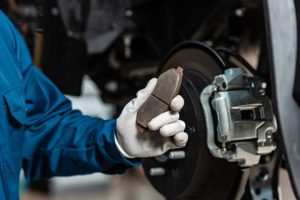
Volkswagen Brake Pad Types
Volkswagen brake pads come in three main types: organic, semi-metallic and ceramic.
- Organic Pads: These are softer and quieter but may wear out more quickly.
- Semi-Metallic Pads: These pads improve heat dissipation and performance, though they can produce more noise.
- Ceramic Pads: Although they’re usually more expensive, they offer excellent performance with minimal dust and noise.
At JDK Automotive Auto Care, our experienced technicians are ready to install high-quality brake pads that suit your VW model and budget.
How Our Team Replace VW Brake Pads
Replacing brake pads can be quite challenging without the proper tools or expertise. Given their crucial role in your VW’s safety, entrusting this task to an expert is wise.
At JDK Automotive, our technicians follow an in-depth process to renew brake pads:
- Ensure the vehicle is on a flat surface and the handbrake is engaged firmly.
- Slightly loosen the wheel nuts on the side where your brake pads will be replaced, but don’t remove them altogether.
- Raise the VW on the side that needs brake pad replacement and position the jack securely underneath.
- With the wheel nuts loosened, remove the wheel to access the braking system.
- Identify the brake calliper, typically held by two bolts, and remove these bolts.
- Remove the worn brake pads from the calliper bracket.
- Push back the calliper piston to accommodate the new, thicker brake pads.
- Place your VW’s new brake pads into the calliper bracket, aligning them correctly.
- Secure the calliper back over the new brake pads with the bolts.
- Replace the wheel and loosely tighten the wheel nuts.
- Carefully lower your Volkswagen from the jack stands.
- Tighten your wheel nuts securely once the vehicle is on the ground.
- Push your brake pedal several times to ensure the brake pads are seated correctly.
- Inspect your VW’s brake fluid level and top it up if necessary.
Bear in mind this is a simplified overview of the brake pad replacement process, and the specific steps can vary depending on your Volkswagen model and year. For optimal results, we always recommend seeking help from a skilled professional.
At JDK Automotive, we have access to dealership-level technical data and guidelines, ensuring that every job is performed to the exact Volkswagen standards. This allows us to provide you with dealership quality for better value.
Maintenance For Your Volkswagen Brake Pads
It’s essential to have your Volkswagen brakes regularly serviced and inspected by skilled technicians. At JDK Automotive, our expert team is ready to inspect and replace any necessary brake components.
Your vehicle’s safety is our top concern. When you bring your Volkswagen to our workshop, we thoroughly inspect your brakes for any issues and ensure all repairs are done right the first time.
Here’s what our check-up includes:
- Brake Pad Examination: We check your brake pads to ensure they are defect-free and have the required thickness.
- Brake Fluid Inspection: We verify that the brake fluid is clean and uncontaminated.
- Brake Disc Assessment: We look for any signs of warping or excessive wear on the brake discs.
- Brake Calliper Check: We ensure the brake callipers are in good condition free from damage or leaks.
We pride ourselves on exceeding the service levels of Volkswagen’s main dealers, offering exceptional value to our customers. When it comes to fixing your brakes, we save you time, money and hassle.
What more could you ask for?
If your VW needs brake pad repairs or an inspection, contact JDK Automotive today.
